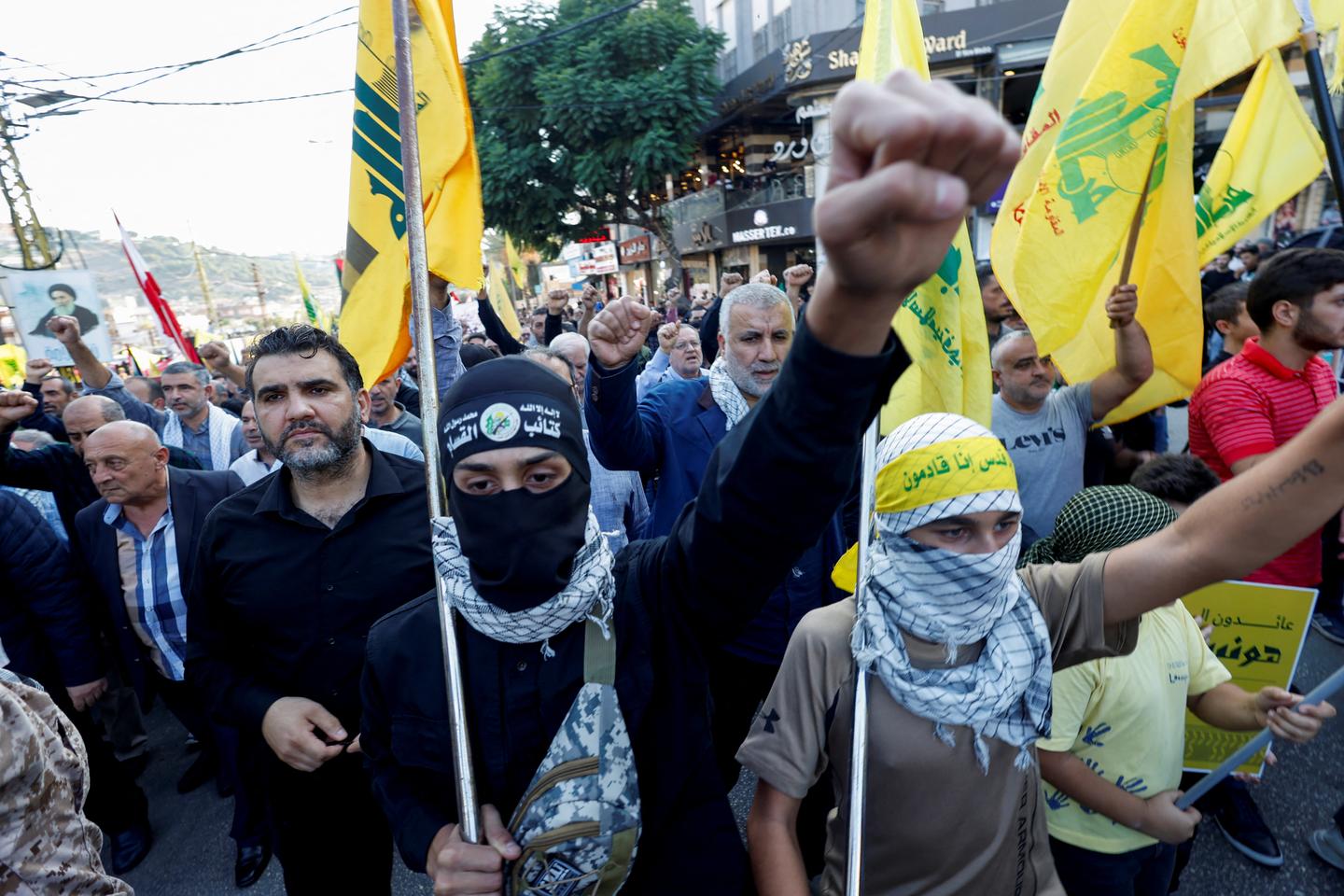


Intense fighting continues along the border between Lebanon and Israel, pending a truce in the Gaza Strip taking effect. At dawn on Thursday, November 23, Hezbollah confirmed the death of five new "martyrs on the road to Jerusalem", as the "Party of God" puts it. One of these battle-hardened fighters was Abbas Raad, son of the head of Hezbollah's parliamentary bloc, Mohammad Raad. "He got what he wanted, I can't blame him for preceding me into martyrdom", said the Lebanese MP after standing over his son's remains.
Abbas Raad's death in action, targeted by an Israeli strike in Beit Yahoun on the border with Israel, is unlikely to change the "tit for tat" fighting between Hezbollah and the Israeli army. The Shiite movement does not reserve special treatment for fighters close to its leaders. Hassan Nasrallah, who lost his eldest son, Hadi, in an operation against Israel in 1997, has said: "We in the Hezbollah leadership do not save our children for the future. We are proud of our children when they go to the front and we keep our heads up with our children when they fall as martyrs."
'A step forward'
Following Qatar's announcement on Wednesday that an agreement had been reached between Israel and Hamas, Hezbollah confirmed that it too would observe the truce. Hezbollah is presenting itself as a "support front" for the Palestinian factions in the Gaza Strip. Hicham Safieddine, who chairs its executive council, described the agreement on Wednesday as a "triumph for the logic of Palestinian resistance," which remains "strong" in the Gaza Strip. Visiting Beirut the same day, Iran's Foreign Minister Hossein Amir Abdollahian hailed it as "a step forward" and warned that the war could spiral out of control if the truce did not last. On Thursday, Iranian President Ebrahim Raissi said that Israel had not "achieved any of its objectives" in over 40 days of war against Hamas, and that "the enemy has been defeated."
Before the truce came into effect, the forces of the "axis of resistance" to Israel, led by Teheran, continued their attacks with the same intensity. In retaliation, the Israeli army and US forces in Iraq have hit strategic targets. On Monday, the Israeli army killed Khalil Hamid Kharaz, Hamas's number two in Lebanon, in a drone strike on a vehicle near Tyre in southern Lebanon. Centcom, the US Middle East Command, confirmed that it had carried out strikes against pro-Iranian Shiite militias in Iraq.
Since the Hamas attack in Israel on October 7, Washington has retaliated against attacks by these militias on the 70 or so American and international coalition bases on Syrian territory. In Iraq, a strike on Tuesday targeted a convoy of Hezbollah brigades near Abu Ghraib, west of Baghdad, killing one fighter. On Wednesday, others targeted the installations of this militia, closely linked to the Iranian Revolutionary Guards, in Jurf Al-Sakhr, south of the Iraqi capital, killing eight people. The Iraqi government denounced a "dangerous escalation," while militia leaders once again called for the withdrawal of US troops from Iraq.
